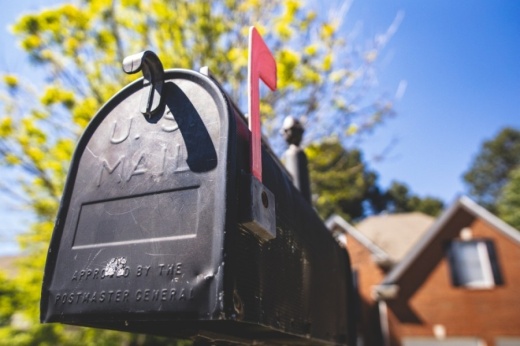In a Sept. 12 statement, Paxton said he filed an appeal with the 14th Court of Appeals in Houston and is requesting a ruling by 5 p.m. Sept. 14 in an effort to prevent the county from sending the applications. The county could begin sending the applications as soon as Sept. 16, according to Paxton's appeal.
"Under Texas election law, mail-in ballots are reserved for a few limited categories of qualified voters who are age 65 and older and voters who are disabled," Paxton said. "The proposed mass mailing would sow confusion because applications would go to all registered voters, regardless of whether they legally qualify to vote a mail ballot and regardless of whether they even want to vote by mail."
The Sept. 12 appeal was the latest in a back-and-forth battle between the county, the state over whether Harris County has the legal authority to send mail ballots to all registered voters. After the county clerk's office first announced its plans in an Aug. 25 tweet, the secretary of state's office sent Harris County Clerk Christopher Hollins a letter ordering those plans to be halted. By Aug. 31, the Attorney General's office filed a lawsuit, and the Texas Supreme Court temporarily blocked the county from carrying out its plans until the state district judge gave his ruling.
Both Paxton and the secretary of state's office have argued that the county's plans will confuse voters and potentially cause people who are not eligible to vote by mail to attempt to do so. Hollins said each mail ballot application sent out will also include educational information about who is allowed to vote by mail under Texas law.
In his ruling, Judge R.K. Sandill wrote the state's argument that the county will impede voting rights by fostering confusion "ring[ed] hollow."
"The State offered no evidence to support such a claim, and the document Mr. Hollins intends to send to voters ... accurately and thoroughly informs them of Texas law concerning mailin voting," he wrote.
Hollins previously called the state's lawsuit "baseless" and "frivolous," expressing disappointment in state officials for trying to block the effort, which he said is intended to educate Harris County voters on their options. He said the Sept. 11 court ruling was a win for Harris County voters.
"We are still enduring a global pandemic ahead of the most consequential election of our lifetime, and voters are concerned about their health and the health of their loved ones," Hollins said in a Sept. 11 statement. "Providing clear information about vote-by-mail eligibility requirements increases voter awareness, and we want to ensure that those who determine themselves eligible can easily apply for a mail ballot and make their voice heard this November."
The American Civil Liberties Union of Texas and the League of Women Voters of Texas also issued statements lauding the decision.
“During this pandemic, voters must be able to assess their own health circumstances and be able to choose whether to vote in person or by mail,” said Grace Chimene, president of the League of Women Voters Texas, in a statement.
In his appeal, Paxton maintained that Hollins does not have the authorization to send mail ballot applications to all registered voters and that a decision needs to be made quickly.
"Such an order is necessary here because if Hollins consummates his plans while this appeal is pending, this Court will be unable to afford the State any effective remedy," officials wrote in the appeal. "Put simply, there is no way to unsend more than two million unsolicited vote-by-mail applications."





